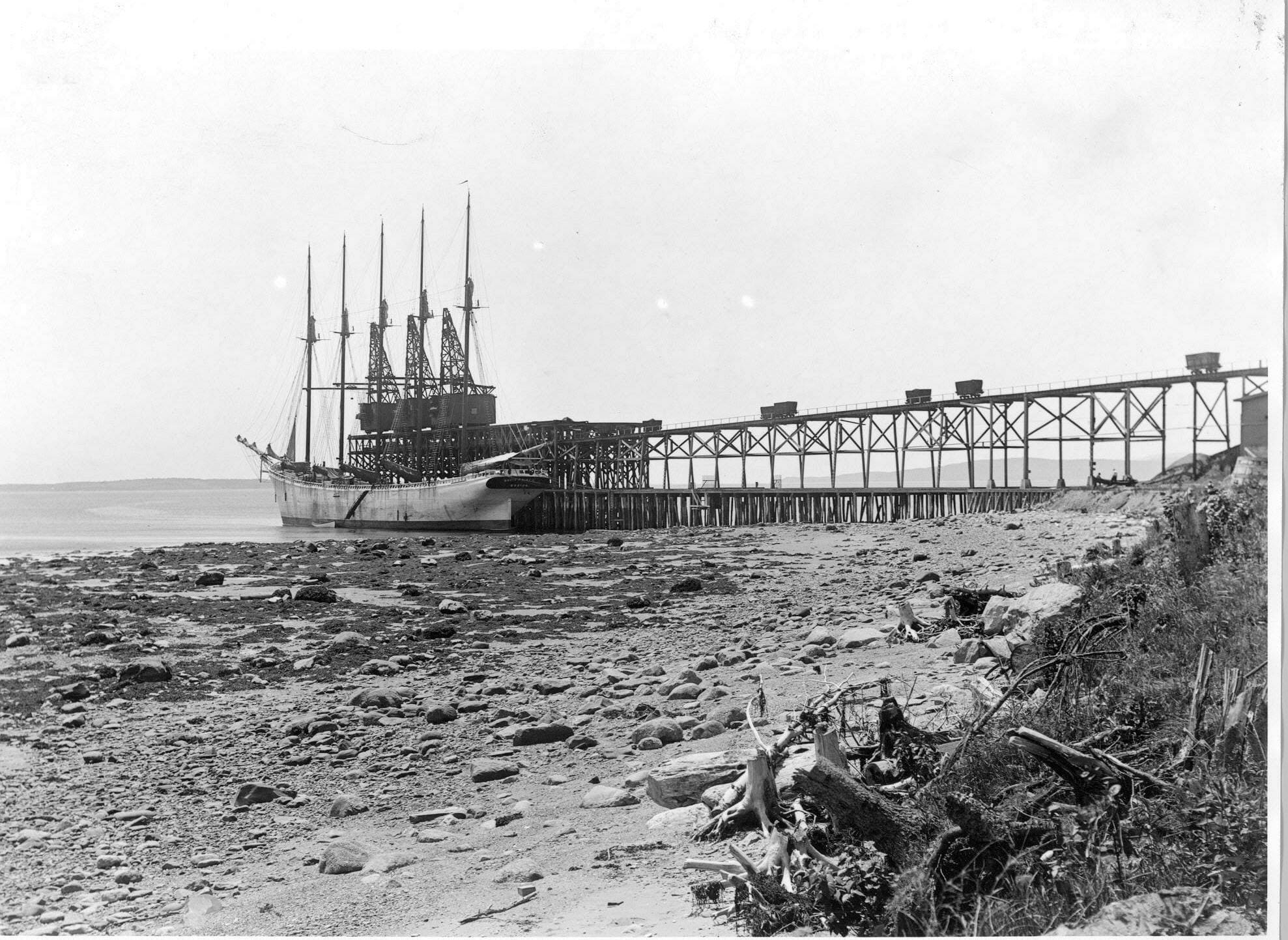Our Energy Makes the Difference®
Founded in 1870 by Charles Hill Sprague, the Charles H. Sprague Company began its history in Boston to meet New England’s growing need for coal. In 1905, the company opened the Penobscot Coal and Wharf Company, a tidewater terminal located in Searsport, Maine.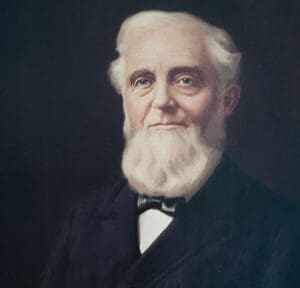
As the major supplier of coal to America’s European allies in the early 1900s, Sprague founded the Sprague Steamship Company to transport millions of tons of coal across the Atlantic. By World War II, the company was operating eleven terminals and a fleet of two dozen vessels transporting coal and other products throughout the world. Its role as a worldwide coal supplier was solidified in 1942, when the United States Government selected Sprague to manage the wartime coal shipment program.
Following the war, Sprague enjoyed an era of rapid growth as residual fuel oil became a major fuel source and component of the energy business. Sprague seized this growth opportunity by building its first industrial oil terminal adjacent to its Portsmouth coal facility. The Sprague family invested in the future by building terminals, acquiring tankers, contracting with suppliers, handling products, and entering new markets. In 1959, the company expanded its oil marketing activities by entering the distillate oil market.
By the late 1960s, the company separated into two operations: coal and oil. This division was quickly followed by the sale of its entire coal operation to Westmoreland Coal Company. Having honed its focus on the oil business, the Sprague family sold its interest in the company to Royal Dutch Shell's Asiatic Petroleum subsidiary in 1970. Two years later, Shell sold Sprague to Axel Johnson Inc., a member of the Axel Johnson Group of Stockholm, Sweden. That move proved fortuitous as it provided the resources for Sprague to prosper during the energy crises of the 1970s.
 Spurred by oil supply crises, the company came full circle in 1982 when Sprague joined forces once again with Westmoreland Coal Company. Through an exclusive marketing arrangement with Westmoreland, coal again became a major component of Sprague's total energy business, and reinforced the company’s position as a major industrial fuel supplier.
Spurred by oil supply crises, the company came full circle in 1982 when Sprague joined forces once again with Westmoreland Coal Company. Through an exclusive marketing arrangement with Westmoreland, coal again became a major component of Sprague's total energy business, and reinforced the company’s position as a major industrial fuel supplier.
Supported by a growing network of terminals, Sprague launched a full-time materials handling effort in 1986. The following year marked a shift in the company's business from being primarily an industrial fuel distributor to also focusing on commercial and wholesale fuels. To aggressively support this new, broader direction, the company made a number of significant acquisitions.
The 1990s saw further expansion as the company entered the natural gas marketplace. In 1999, Sprague moved its corporate offices to a new location in Portsmouth, New Hampshire.
By the turn of the century, Sprague began marketing ultra low sulfur diesel to fleet vehicles, including school buses and long haul trucks, years before the EPA made the cleaner fuel mandatory. Materials handling capabilities expanded to include breakbulk and heavy lift in Searsport, Maine, and more forest products with a newly acquired company in nearby Portland.
A couple years later, Sprague launched an industry-leading online buying program, Sprague Real-Time.®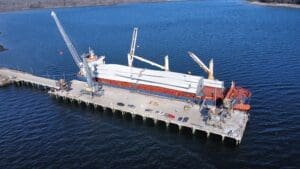
In 2005, Sprague expanded its footprint in Maine with the acquisition of Merrill Marine Terminal Services, Inc. in Portland, Maine. This provided Sprague with another sizeable operation in New England—adding approximately 600,000 tons of annual materials handling capacity. Sprague continued to expand its materials handling business to meet its customers’ evolving requirements, such as offloading large wind turbine blades and components.
Traditionally, Sprague's Natural Gas business has served large commercial and industrial market segments. The acquisition of Houston Energy Services (HESCO) in 2006 expanded Sprague's natural gas offerings geographically and positioned the company to grow its small commercial market segment.
Just one year later, Sprague acquired 50% of Kildair Service Ltd, a Canadian-based terminal and export cargo business. In 2012, Sprague successfully completed the acquisition of the remaining 50% and began actively expanding the Materials Handling aspects of the Montreal-located facility. Sprague headquarters moved into a new building at 185 International Drive in Portsmouth, New Hampshire, in 2013.
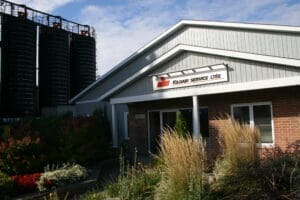 That same year, Sprague completed its initial public offering as the master limited partnership Sprague Resources LP, culminating in shares trading on the NYSE under the ticker symbol “SRLP.” The IPO granted the company increased access to capital to support its continued growth.. Just one year into life as a public company, Sprague acquired the business assets of Metromedia Energy, a natural gas marketing and electricity brokerage firm out of New Jersey, and Castle Oil Corporation, a fuel oil business with a terminal in Bronx, New York. These additions effectively grew Sprague’s capabilities and reach through expanded markets in both natural gas and refined products spaces. Sprague also acquired the remaining assets of Kildair Services, Ltee, which expanded the company’s footprint into Quebec, Canada.
That same year, Sprague completed its initial public offering as the master limited partnership Sprague Resources LP, culminating in shares trading on the NYSE under the ticker symbol “SRLP.” The IPO granted the company increased access to capital to support its continued growth.. Just one year into life as a public company, Sprague acquired the business assets of Metromedia Energy, a natural gas marketing and electricity brokerage firm out of New Jersey, and Castle Oil Corporation, a fuel oil business with a terminal in Bronx, New York. These additions effectively grew Sprague’s capabilities and reach through expanded markets in both natural gas and refined products spaces. Sprague also acquired the remaining assets of Kildair Services, Ltee, which expanded the company’s footprint into Quebec, Canada.
In 2017, Sprague acquired Coen Energy, expanding the business model to provide energy products and field services to customers in Pennsylvania, Ohio and West Virginia.
In 2018, Sprague embarked on a pioneering initiative in renewable energy by installing the nation’s first solar panels on an oil storage tank in Portland, Maine. This innovative project not only cut energy costs but also significantly reduced carbon emissions, reflecting Sprague’s commitment to sustainability and environmental responsibility. Building on this success, Sprague expanded solar capabilities to additional tanks in New York, signaling their commitment to renewable energy solutions.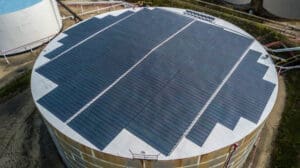
In a significant corporate development in 2022, Sprague was acquired by Hartree Partners, LP, a global energy and commodities firm focused on sustainable and economically viable energy strategies. This acquisition positioned Sprague to capitalize on the evolving demands of the energy and commodities markets and placed them at the forefront of sustainable energy strategies.
By 2023, Sprague had introduced Renewable Diesel to the New York Metro area, leading the charge towards lower carbon emissions. This initiative set a new standard in the region for environmental responsibility and showcased Sprague’s ongoing dedication to innovative energy solutions. By 2024, Sprague further highlighted their leadership in the energy sector by supply New York City’s first ever retail fuel station dispensing renewable diesel. This milestone demonstrated Sprague’s commitment to reducing transportation emissions and supporting a sustainable future.
As Sprague moves forward, it continues to embrace its heritage of innovation and commitment to providing cleaner, more sustainable energy solutions.
